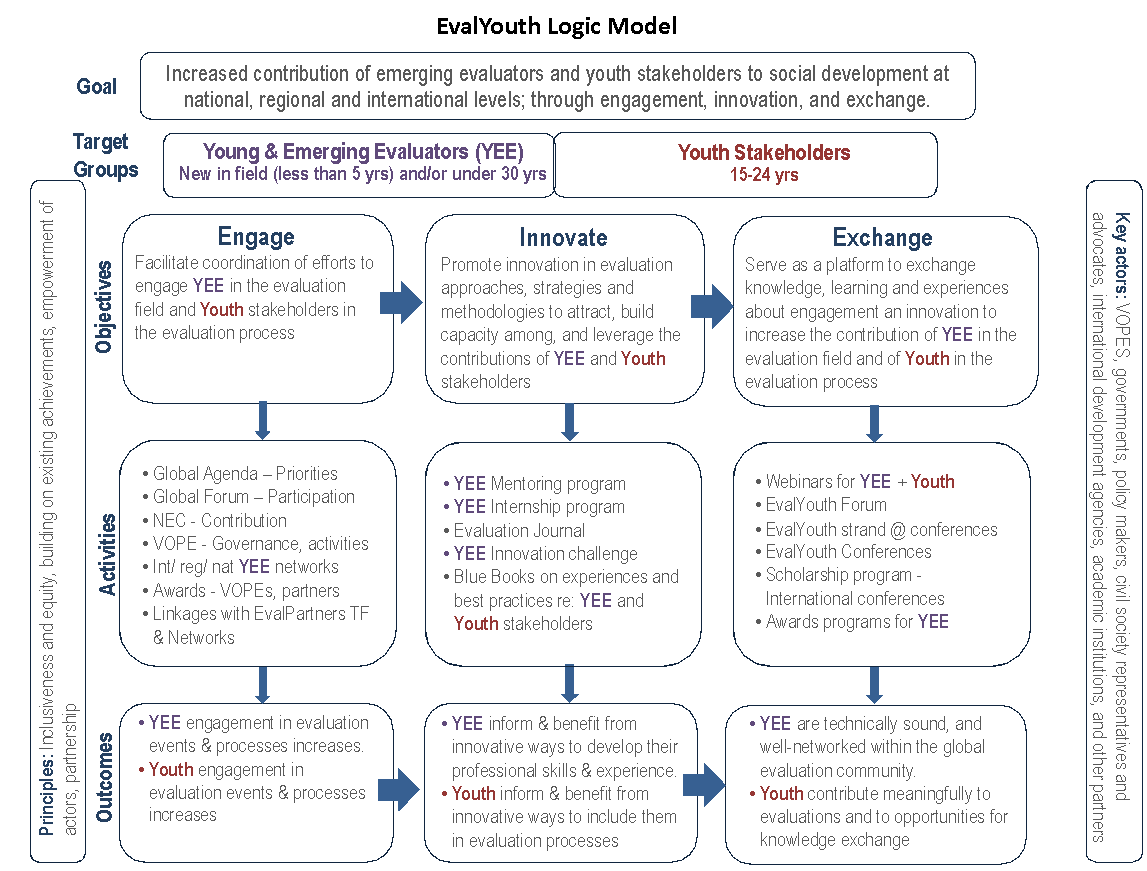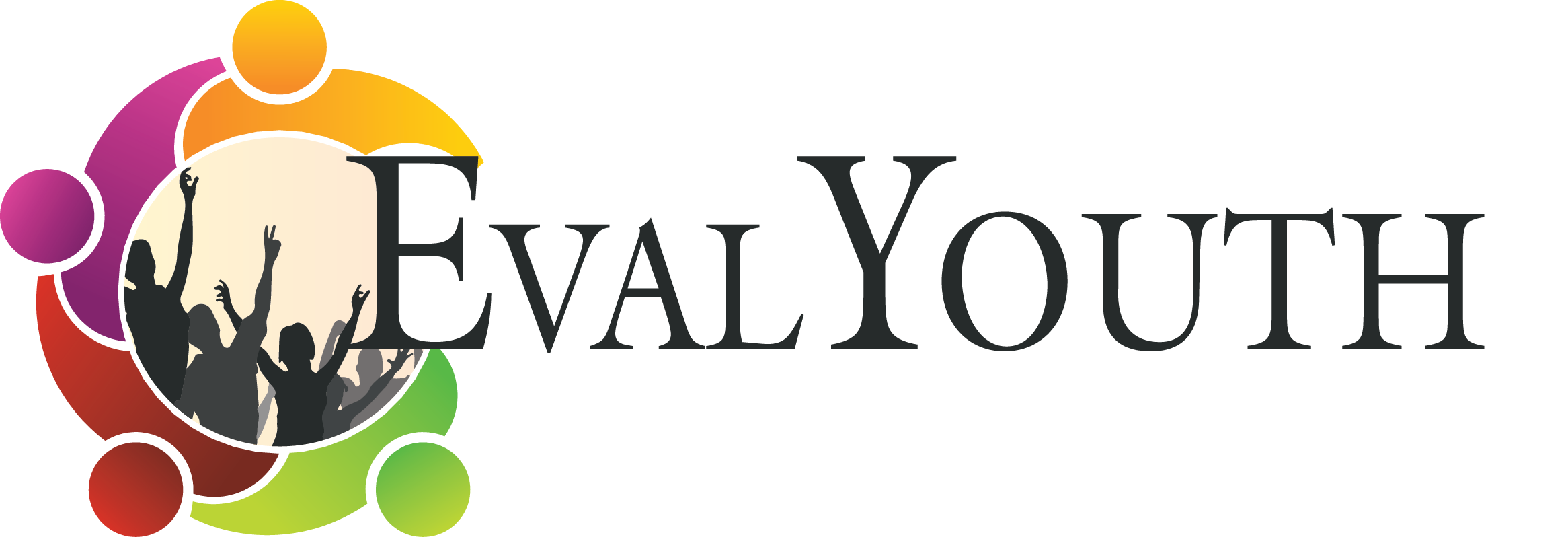Why EvalYouth?
Evaluation’s most vital long-term goal is to contribute to sustainable and equitable development. This goal depends on the production of high-quality evaluations that meet certain quality standards, such as utility, feasibility, propriety, accuracy, and accountability. However, the global evaluation community faces an ongoing issue: the pool of skilled evaluators is shallow, and demand far exceeds supply. This is particularly relevant given the adoption of the Sustainable Development Goals (SDGs), as assessing their progress draws significant attention to evaluation.
At the same time, young evaluators are also under-represented in many Voluntary Organizations for Professional Evaluators (VOPEs), which not only prevents them from building the necessary skills and expertise to help meet the demand for high-quality evaluations, but also threatens the sustainability of the field. Thus, the current question for the global evaluation community and actors whose long-term goals rely upon high-quality evidence is:
Who are young and emerging evaluators?
● Evaluators under age of 35 years, OR
● Evaluators who have less than 5 years of professional experience, OR
● Recent university graduates who are interested to join the evaluation profession, OR
● Development professionals who have technical knowledge on evaluation and willing to become professional evaluators.
Who are youth and young people?
● Individuals between the ages of 10 and 24 who have a stake in an evaluation, OR
● Individuals between the ages of 10 and 24 who are affected by evaluation decisions.
What principles guide the work?
Seven principles guide the work of EvalYouth to ensure sustainability:
- Inclusiveness and equity
- Democratic governance
- Belief in the importance of youth and YEE work
- Innovation
- Sustainability
- Partnership
- Building on existing achievements
What Does EvalYouth Want to Achieve?
The EvalYouth Global Network, an EvalPartners initiative, has two overarching goals:
- To promote Young and Emerging Evaluators (YEE), including young women, to become technically sound, experienced and well-networked professionals who contribute to evaluation capacity at national, regional and international levels.
- To promote the inclusion of Youth and Young People (YYP), including young women, in evaluations conducted at the national, regional and international levels.
EvalYouth will achieve these goals through: i) social mobilization of key actors to engage YEE and youth stakeholders, ii) promotion of innovation in evaluation practice and policy, and iii) exchange of learning and knowledge.
How can we increase national, regional, and international capacity to produce high-quality evaluations?
In addition to the technical expertise of professional evaluators, the quality of evaluations depends on stakeholders’ appropriate representation and participation. However, youth and young people are historically and frequently absent from the evaluations of policies and programs that impact them, except as a potential source for data collection. If the SDGs are to be fully realized, it is essential to prioritize the inclusion of youth and young people in evaluation processes. The need to include youth and young people in evaluation raises a secondary challenge for evaluators and those who commission and use evaluations:
How can we advocate for and include youth and young people in the evaluation process?
To address both challenges, EvalYouth was formed based on the Global Evaluation Agenda (2016-2020), known as the Eval2020 Agenda. This was developed and agreed upon during the Global Evaluation Week in Kathmandu, Nepal in November 2015, and was the culminating event of the International Year of Evaluation (EvalYear).
How have we been working to achieve these goals?
When established in 2015, EvalYouth developed a Logic Model that defines how it plans to achieve its targeted goal. To reach its overall goal of increasing the contribution of emerging evaluators and youth stakeholders involvement in social development, EvalYouth identified a series of activities to meet its objectives of “Engage,” “Innovate,” and “Exchange:”

